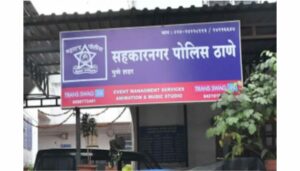The Government is committed to empowering the disabled population
Mumbai, December 17, 2016 : A nationwide programme of providing modern technology for persons with disability has been launched by the Ministry of Social Justice and Empowerment. Stating this at the Ali Yavar Jung National Institute of speech and hearing disabilities Shri Thaawar Chand Ghelot Minister for social justice and empowerment announced cochlear implant for children below the age of 5 years having bilateral congenital severe to profound deafness and upto the age of 12 years having bilateral post lingual deafness .Ali Yavar Jung institute has been the nodal agency for this programme .The programme was launched on 3rd December 2014 and so far 530 surgeries have been done on children with hearing disabilities who can now hear and speak .The institute has empanelled 140 hospitals all over the country and a dedicated website is also developed with a provision for parents to submit applications online for cochlear implant surgery .
During his visit to the Institute the Minister planted 125 coconut tree saplings. He was accompanied by Shri Ramdas Athwale, Minister of State for Social Justice and Empowerment. The Ministers distributed Certificates of Appreciation to parents of children with hearing disability who have benefitted under the ADIP Scheme of Cochlear Implant being implemented by Ali Yavar Jung National Institute of Speech and Hearing Disabilities (Divyangjan).
Shri Thaawar Chand Gehlot informed that the Rights of persons with Disabilities Bill 2016 was passed in Lok Sabha on December 16, 2016. Rajya Sabha had already passed the Bill on December 14,2016 with 119 amendments. The Bill will replace the persons with Disabilities (Equal opportunities, Protection of rights and Full participation) Act 1995 which recognised 7 disabilities – blindness, low vision, leprosy-cured, hearing impairment, locomotor disabilities, mental retardation and mental illness. The 2016 Bill expanded the definition of disability to cover 21 conditions, specific learning disabilities, multiple sclerosis, speech and language disability, thalassemia, haemophilia, sickle cell disease, multiple disabilities including deaf blindness, acid attack victims and Parkinson’s disease. The Bill also allowed the Central Government to notify any other condition as a disability.
The Bill makes a special mention of the needs of women and children with disabilities, and lays down specific provisions on the guardianship of mentally ill persons. “The amendments include private firms in the definition of ‘establishments’, which previously referred to only government bodies. All such establishments have to ensure that persons with disabilities are provided with barrier-free access in buldings, transport systems and all kinds of public infrastructure, and are not discriminated against in matters of employment,” said the Cabinet Minister.
The Bill is being brought to comply with the UN Convention on Rights of Persons with Disabilities, to which India became a signatory in 2007.
The 2011 Census put the number of disabled in India at 2.68 crore, or 2.21 per cent of the population. The Bill makes a larger number of people eligible for rights and entitlements by reason of their disability, and for welfare schemes and reservations in government jobs (which is raised from three to four per cent) and education.








